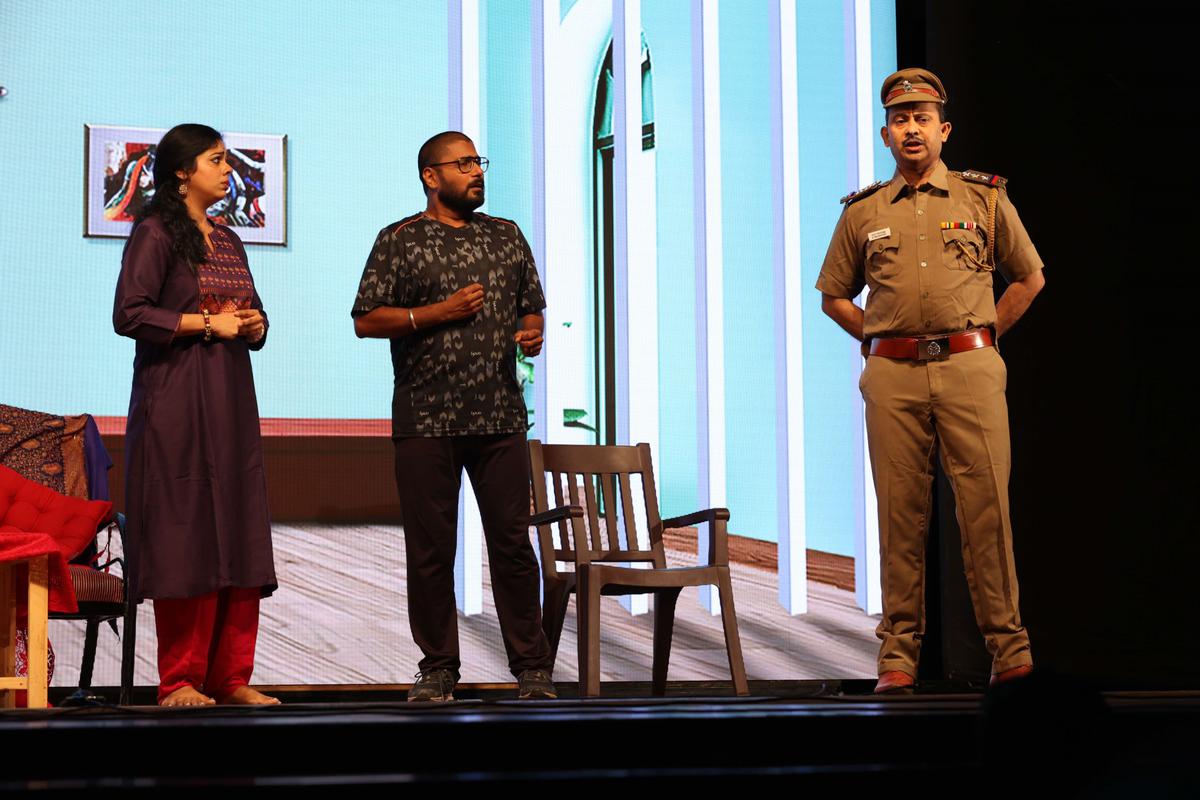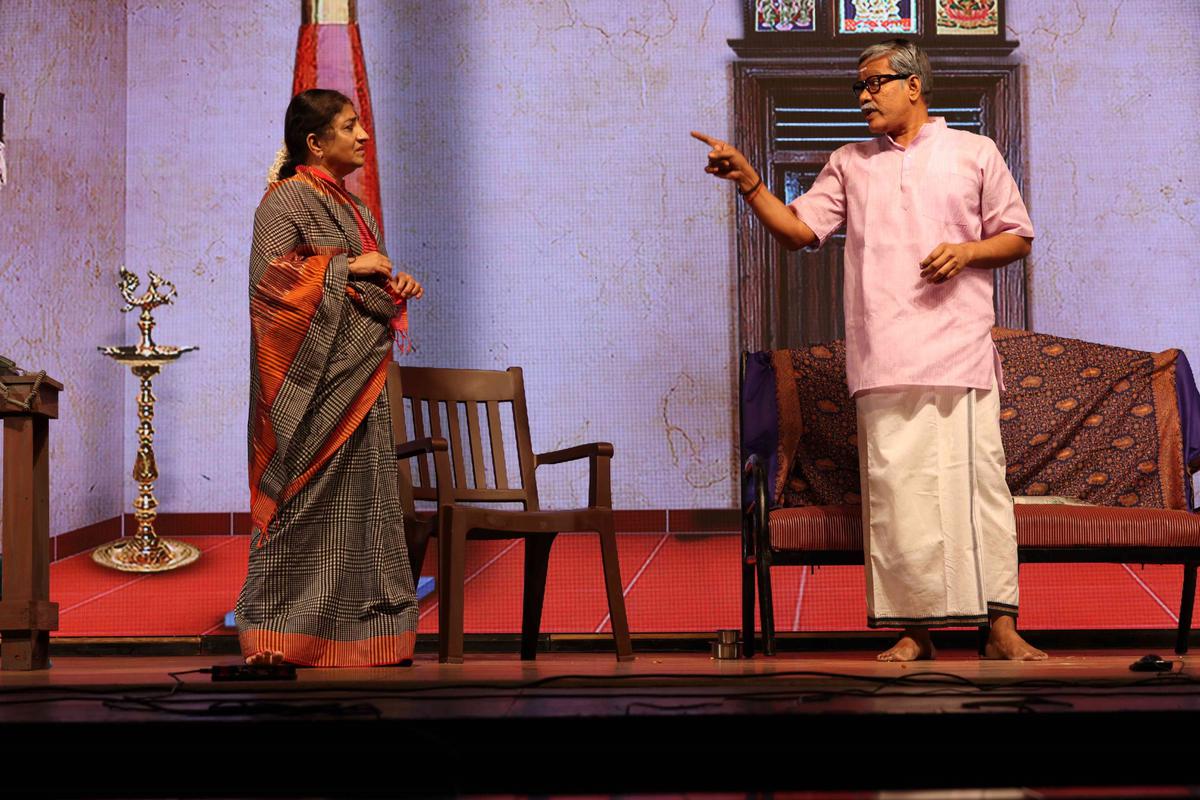
A scene from Akbar Sastri staged by Komal Theatres recently at Narada Gana Sabha.
| Photo Credit: Special Arrangement
Dharini of Komal Theatre presented stage adaptations of short stories, under the auspices of Karthik Fine Arts. The bouquet included Bimbam (R. Chudamani) and Suriyan (Sujatha), which were staged in 2018 and 2019. Bimbam is about a girl’s dilemma — should she trade her independence for a marriage that appeals to her? Suriyan gives us a vision of a frightening future, where the world has been ravaged by a nuclear apocalypse.
Well-modulated presentation
Thi Janakiramman’s Akbar Sastri takes place in the compartment of a train. The chief protagonist Akbar Sastri, has acquired the moniker ‘Akbar’, because, like Emperor Akbar, he borrows good ideas wherever he finds them. He tells a fellow passenger about home remedies for various illnesses and about his age defying health. He has never once consulted a doctor. But the garrulous Sastri collapses suddenly, and it is clear that his end is near. Before he breathes his last, he mentions a relative who lives nearby, making it easy for his fellow passengers to inform the railway authorities. Thus, self-reliant Sastri takes care of everything till the end. Shantaram’s modulated dialogue delivery brought out the forcefulness of the character.

An adaptation of Sujatha’s Kaalai Ezhundavudan Kolai, staged at Narada Gana Sabha recently.
| Photo Credit:
Special Arrangement
A light-hearted murder mystery
Sujatha’s range was wide, and his murder mysteries were riveting. But, Kaalai Ezhundavudan Kolai, which Dharini had picked, isn’t really a mystery, because there is no detection involved here. Nor is it macabre or frightening. It is a humorous take on the reactions of people, when they fear that they may be dragged into a murder case, and may have to face police interrogation. Janardhanan finds a dead body in a park. He is too scared to report it to the police. His wife’s imagination runs riot. She is sure he will be arrested for not informing the police, and she will have to run around looking for a lawyer to bail him out. She is convinced he will be convicted. She even thinks about scheduling weekly visits to the prison! Who would have thought a short story about a murder could be such fun? Krithika Shurajith as the panicky wife and Anand Sahasranamam as the edgy Janardhanan made the play enjoyable.

Manidha Uravugal, an adaptation of Komal Swaminathan’s story of the same title, was staged at Narada Gana Sabha recently.
| Photo Credit:
Special Arrangement
Of relationships and values
Manidha Uravugal is an adaptation of Komal Swaminathan’s prize winning story of the same title. Annam (Dharini Komal) and Ravindran (Sashi Kumar) are the aged parents of Ashok, who lives in the U.S. and has not visited them for seven years. Murugan is their general factotum. Murugan is a sincere worker, but he takes leave for four days a month, to be with his parents in the village.
Ashok finally arrives to spend a few days with his parents, but the visit is cut short for business reasons, and he leaves the same day, without even having a proper conversation with them. Annam and Ravindran are heartbroken. When it is time for Murugan to make his monthly visit to his village, they decide to accompany him, to pay their respects to his parents, for Murugan’s parents have taught their son the value of human relationships. Annam and Ravindran are glad such sentiments are kept alive in villages.
But is it really about being in a village? Parents blame their children for their selfishness, but how much of it is due to the parents themselves? If parents tell their children about the importance of a successful career, but little else, how can the children be faulted if they grow up to be selfish? This is where Murugan’s parents have scored, and Ashok’s parents have obviously failed.
To this reviewer, that is the key takeaway of the play, although the play does not explicitly show Ashok’s parents doing a self -analysis and coming to the conclusion that they might have failed as parents. But that is the beauty of this story. It can be seen from more angles than one.
The LED designs by Thyagarajan were sleek. Master Ashiq, as the little boy Ravi in Suriyan, delivered his lines with aplomb. There is a treasure trove of Tamil short stories just waiting to be explored for their dramatic possibilities. Dharini Komal must be complimented for bringing some of them from page to stage. One hopes the journey continues.